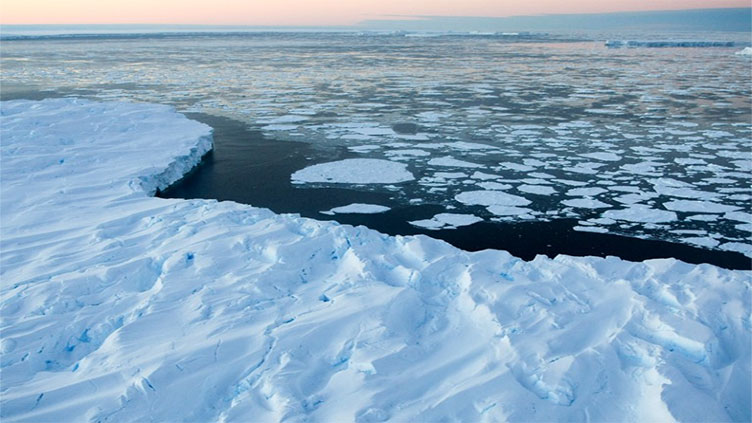Climate tipping points near for Greenland, but it's not too late to save ice sheet, researchers say

WeirdNews
New research suggests the Greenland ice sheet is on track to cross a critical threshold
(Web Desk) - New research suggests the Greenland ice sheet is on track to cross a critical threshold that could cause runaway melting, but that it’s also possible the threshold will be crossed temporarily, cooling down the planet and ultimately returning the ice sheet to a stable state.
The findings, published Wednesday in the journal Nature, underscore the importance of limiting the planet’s warming to 1.5 degrees Celsius (about 2.7 Fahrenheit) — or returning to that level, or below, as quickly as possible if humanity exceeds it.
“If we change the temperature back fast enough, we don’t necessarily commit to a system change,” Nils Bochow, a climate scientist at the Arctic University of Norway in Tromsø and the lead author of the study, said in an interview.
“We have time to reverse temperatures from this runaway effect.”
The Greenland ice sheet is one of more than a dozen theoretical climate tipping points — rapid, irreversible or abrupt changes — that keep some scientists up at night.
And the findings, while alarming, add to a drumbeat refrain from many climate advocates: Urgency is essential, but it’s not too late to avoid the worst of climate change.
The research suggests the critical threshold for the Greenland ice sheet is between 1.7 and 2.3 degrees C of global warming. Bochow said humanity would have 100 years — perhaps more — to cool down and avoid locking in positive feedbacks that would intensify Greenland’s melting.
He said that crossing the threshold, even temporarily, would likely cause several meters of sea level rise, but it would still be possible to stabilize the ice sheet.
Benjamin Keisling, an assistant research professor at the University of Texas Institute for Geophysics, who was not involved in the research, said the ice sheet’s size gives humanity a chance to shift course.
“These systems are really complex and because ice sheets like Greenland are so big, in some ways they’re sluggish to changes,” he said.
“It’s not something you can melt over the course of a year or decade or century. That actually buys you some time.”
Scientists think the Greenland ice sheet, if melted completely, would contribute more than 7 meters (about 23 feet) of sea level rise to the world’s oceans. Melting a large portion of that ice sheet would reshape coastlines and societies in a process that would take hundreds or perhaps thousands of years.
World leaders are struggling to cut fossil fuels from their economies, and they remain off pace on goals to limit warming to levels considered safer and more tolerable during international climate negotiations.


